Masterclass Overview
This advanced sailing course is designed for sailors who wish to enhance their skills in offshore/ocean sailing, navigation, and crew management. The challenging waters of the Bay of Biscay provide an ideal setting for this intensive course, which combines practical sailing experience with more advanced theoretical knowledge. Read our overview of the Passage Making Masterclass series here.
Learn from World Class Sailors
This iconic event starts every year with a day in the lecture theatre where we hear from and learn from some of the most iconic sailors of their generation. In 2023 we were privileged to discuss heavy weather with Mike Golding MBE, world champion and multiple circumnavigation. Also Miranda Merron of Vendee Globe fame and an incredible meteorology masterclass from Simon Rowell, meteorologist to the British Olympic sailing team.
Mike Golding OBE
Winning skipper in the 1996/97 BT Global Challenge Round the World Race. 4 Vendee Globe round the world races. British Admiral’s Cup Team Leader. Extreme Sailing Series Racer. He has established and holds numerous world records and awards – including the prestigious “Emile Robin” and “Royal Humane Society” awards following the successful rescue of fellow solo sailor Alex Thomson from his sinking yacht in a remote part of the Southern Ocean.

Miranda Merron
Navigator in the Volvo Ocean Race, a competitor in the Jules Verne Trophy and also in the Vendee Globe race. Route du Rhum racer and Global Ocean Race.
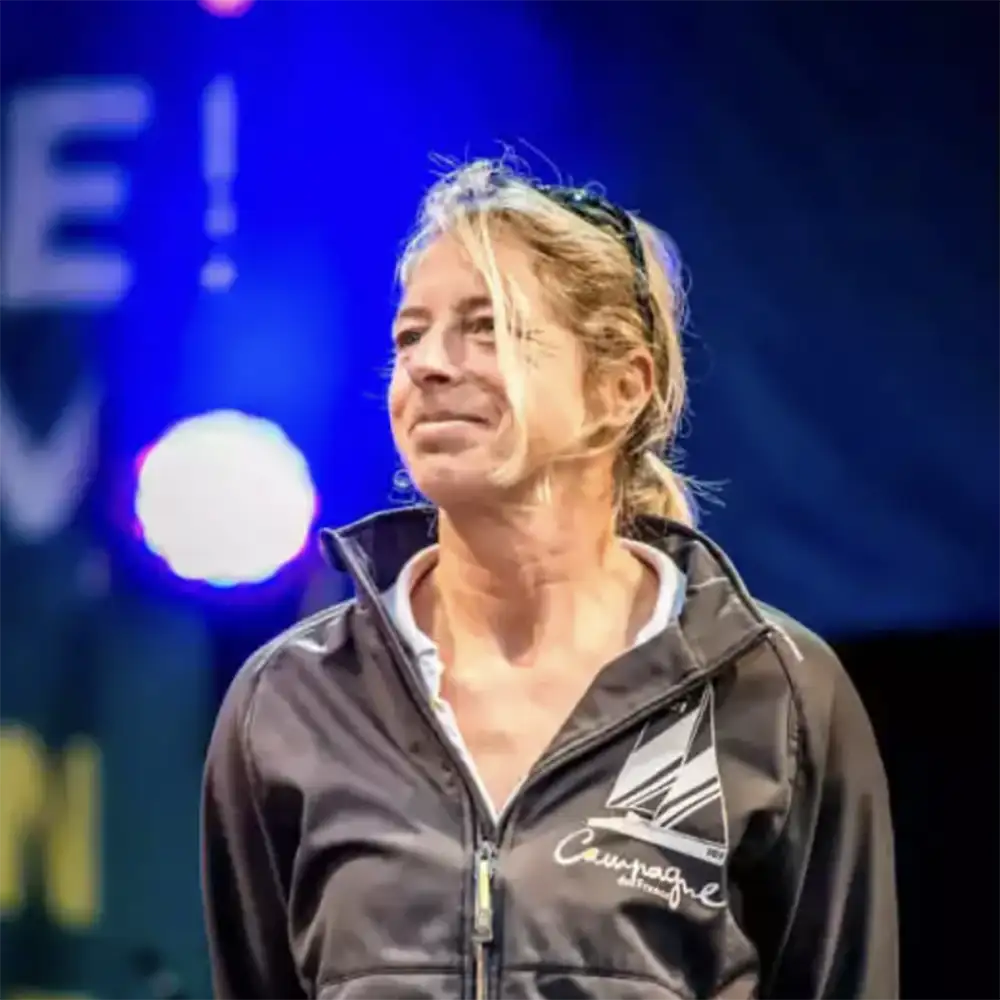
Simon Rowell
Round the World race skipper and now meteorologist to the British Olympic Sailing Team.
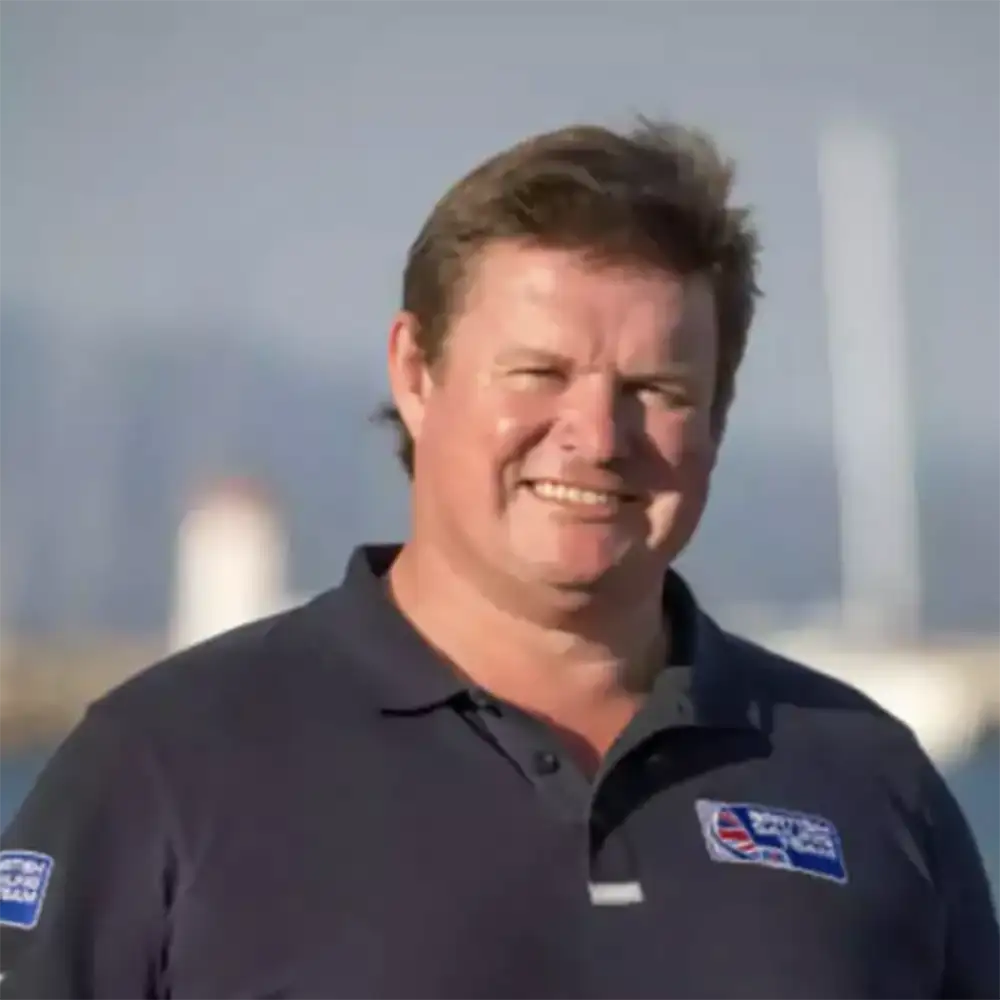
Finally, there will be a briefing from Bruce Jacobs on the route, timings and navigational marks. The day finishes with a big welcome party with food, drinks and plenty of fun.
On the water training day
The first day on the water is a big acclimatisation day, with crew taken gently through all the key skills (we know many will be rusty) and training to polish up individual and group skills. There will be lots of practice for all crew, so everyone is able to be fully involved. We will likely all head up the Helford River for a fun night at anchor.
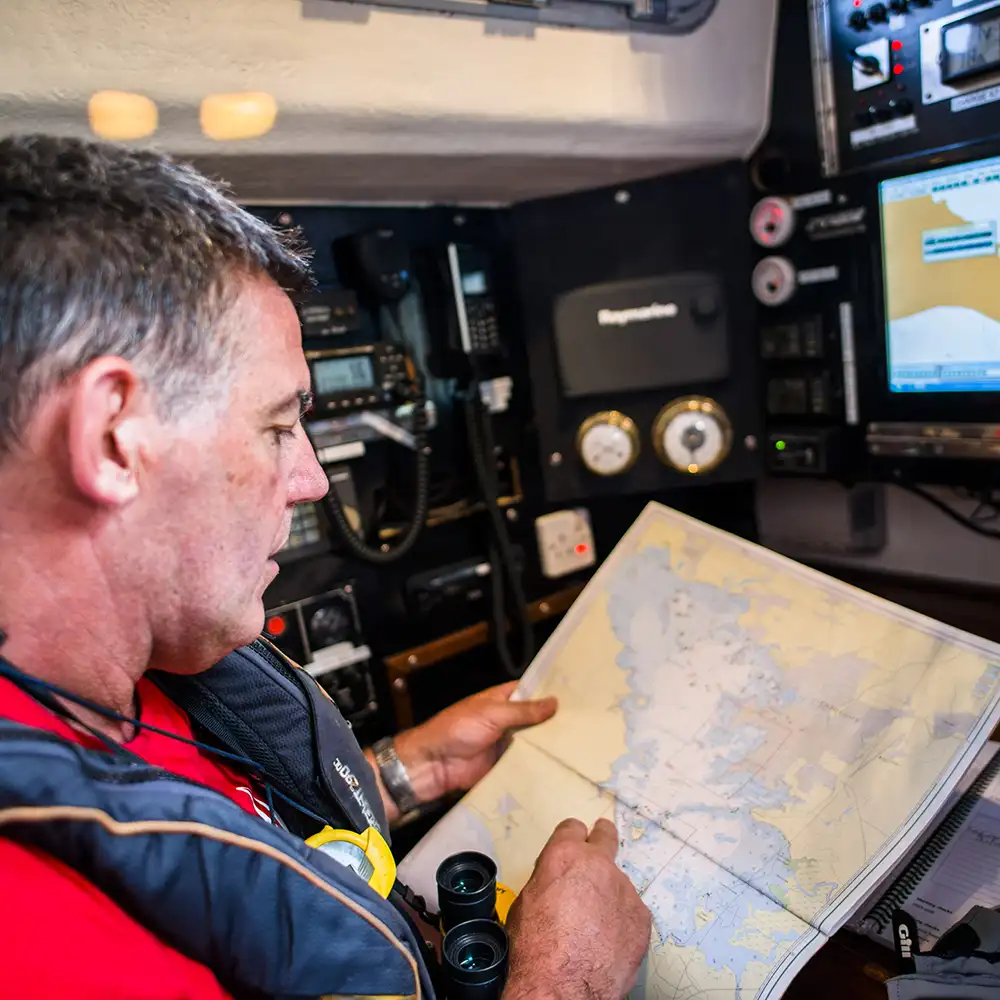
Passage to Brest
Exact timings and destinations will be weather dependant, but usually our first big sail is the 100 miles to Brest on the north west coast of France, possibly with a stop at Ushant if we can. Brest, the famous French maritime town, is the traditional launching point for big journeys south and for Biscay crossings. The three crews, each on their own yacht, will really get to test themselves against each other on this sail, which will take around 16 hours. As we say, it’s not a race but it will be interesting to see who comes in first!
In Brest itself, if we have made good time, we can have a fun evening around the Quai Commandant-Malbert area, with its great views of the city. The hundred or so multi-coloured buoys of the Finistère lighthouses and beacons are a spectacular sight, as is the mythical La Recouvrance schooner and the Abeille-Flandres, one of the most powerful towboats in the world.
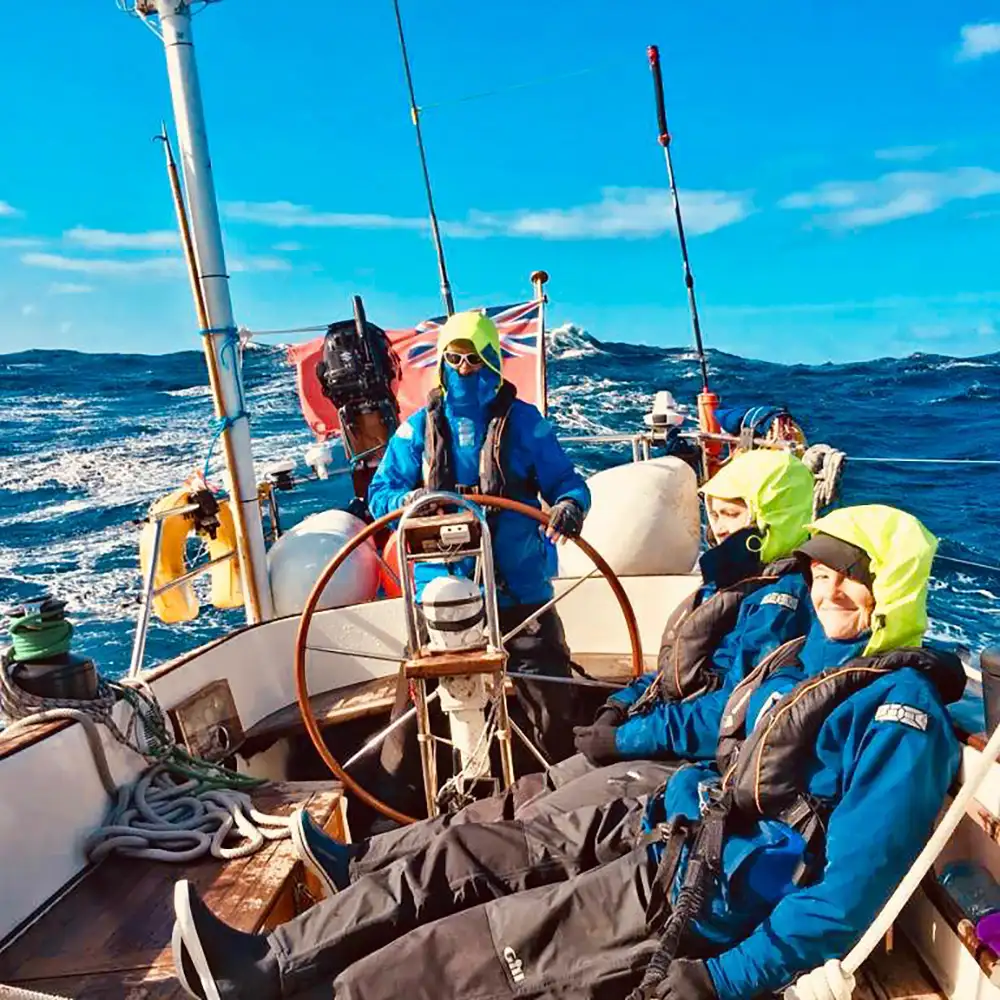
Across Biscay to Spain
While in Brest, we will carefully watch the weather, and when it’s favourable we’ll set off on this famous passage, made by so many thousands of intrepid sailors before us. We have around 340 miles to sail on a south westerly heading. With a good weather window, we’ll have spectacular sailing, with winds that give these special yachts everything they need to speed through the water at around 10 knots. These blue water thoroughbreds are at their best when offshore and you will realise just how special they are. Supremely safe, strong and perfectly at home.
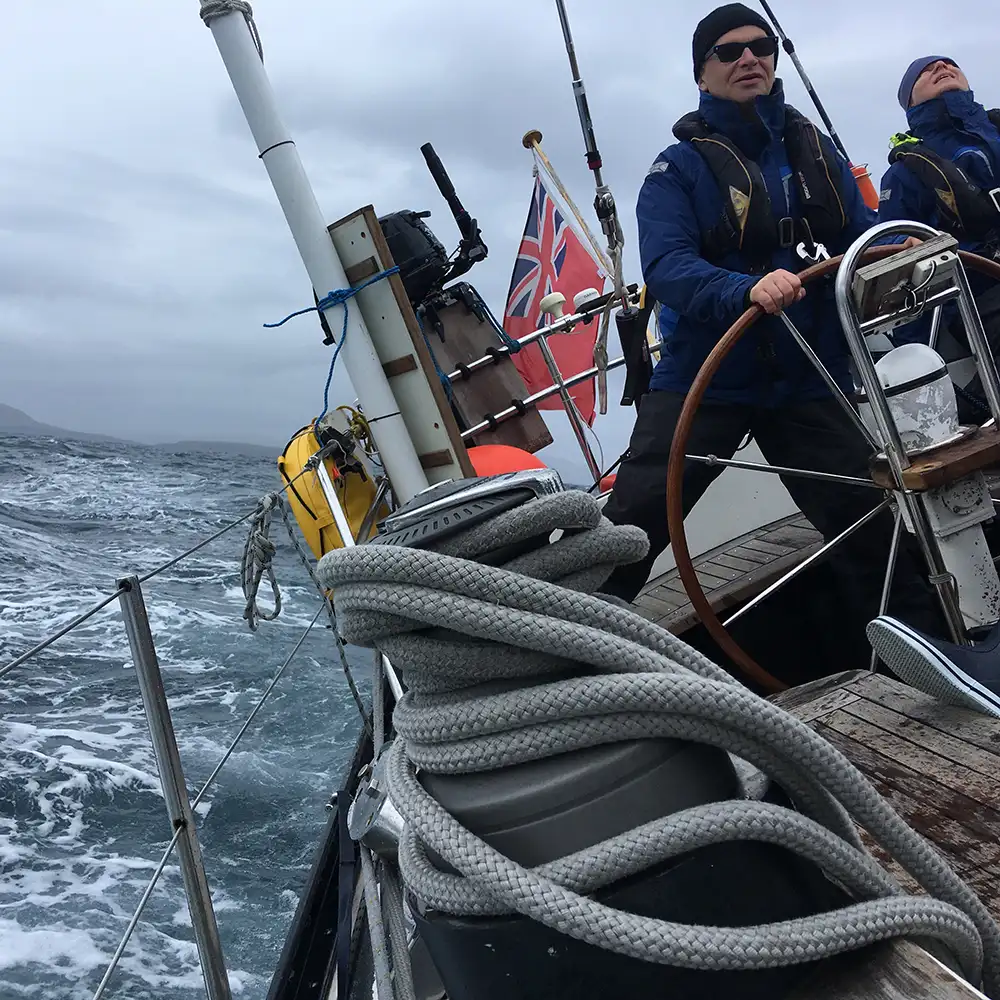
The crossing usually takes about 2-3 days, so you will be in a full watch system, sailing through the night and days. It’s a wonderful offshore sail. We are well west of the infamous shelf, but strong winds can still come through so all our training will be important, but we could not be on better suited yachts and heavy weather if it comes is all part of the experience of Biscay!
Our likely destination is the wonderful Spanish town of A Coruna. This is a port city and very much a cultural hub for this part of Galicia. It’s a historic city and a proud modern metropolis with a fine food scene, an intriguing place to discover. After the cold, dark days of the British autumn, you are suddenly in warm, sunny Spain and there is a fantastic sense of truly having sailed to a new country. Again, the crews can see who has come first into A Coruna, and enjoy another small social evening out on the town.
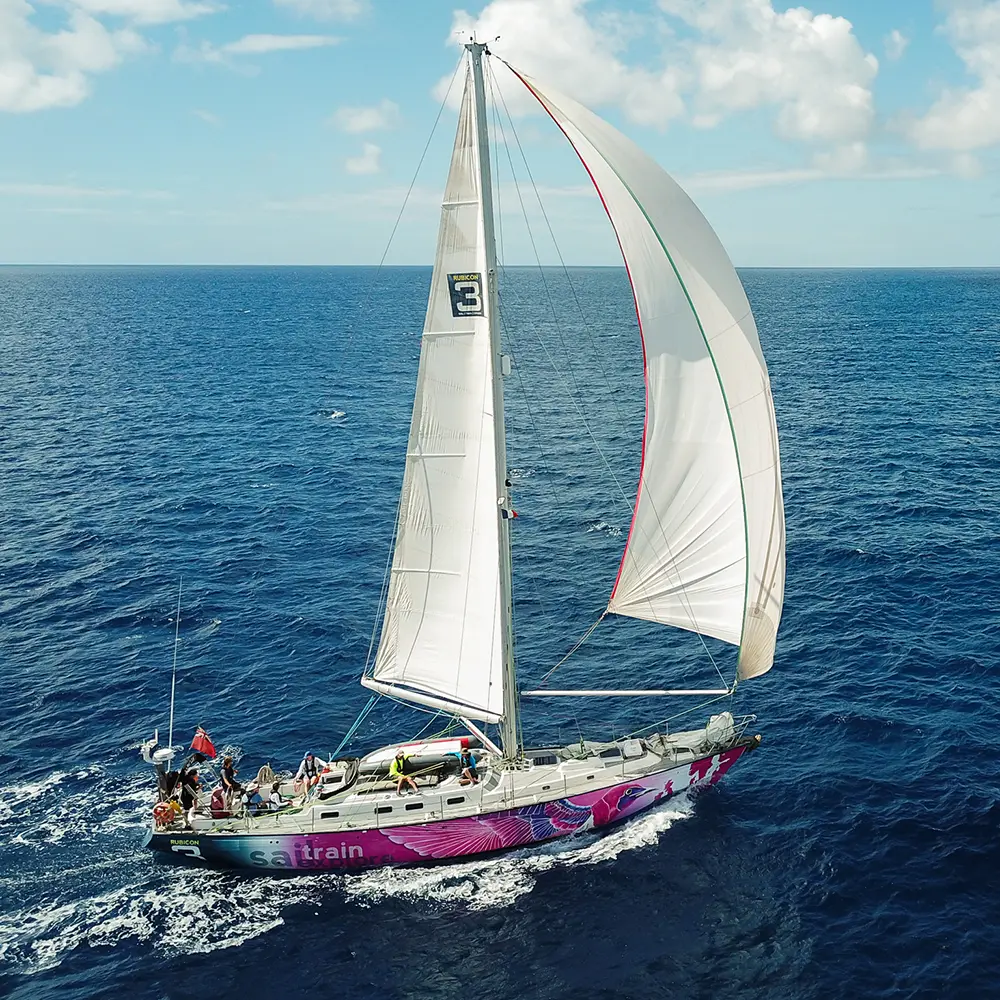
Around Cape Finnisterre, European mainland’s most westerly point
We have around 70 miles left, and some of the most wonderful cruising if time allows. Now is the time to relax and enjoy, with skills and teamwork polished and a slick sailing team able to take in the best of this Galician coastline. There are countless options, with small Spanish coastal towns with tapas, beer and beautiful views to take in through the warm evenings. One of the real attractions is of course rounding (& possibly walking right up to) Cape Finisterre and the very edge of Europe.
We end the Bay of Biscay Expedition with all three yachts docked in Vigo, Spain for one last, final hurrah, with lots of fun to be had in town before all the crew head their separate ways.
Masterclass Objectives
- To develop more advanced sailing skills in coastal and offshore scenarios, including navigation and piloting.
- To enhance weather forecasting and storm tactics abilities.
- To practice emergency procedures and safety management.
- To refine sail trim and boat handling skills in various conditions, including rough weather.
- To improve crew management and communication.
Syllabus Outline
Pre-Departure Preparation
- Safety briefing and emergency procedures.
- Overview of the voyage plan.
- Weather routing and forecasting.
- Crew roles and responsibilities.
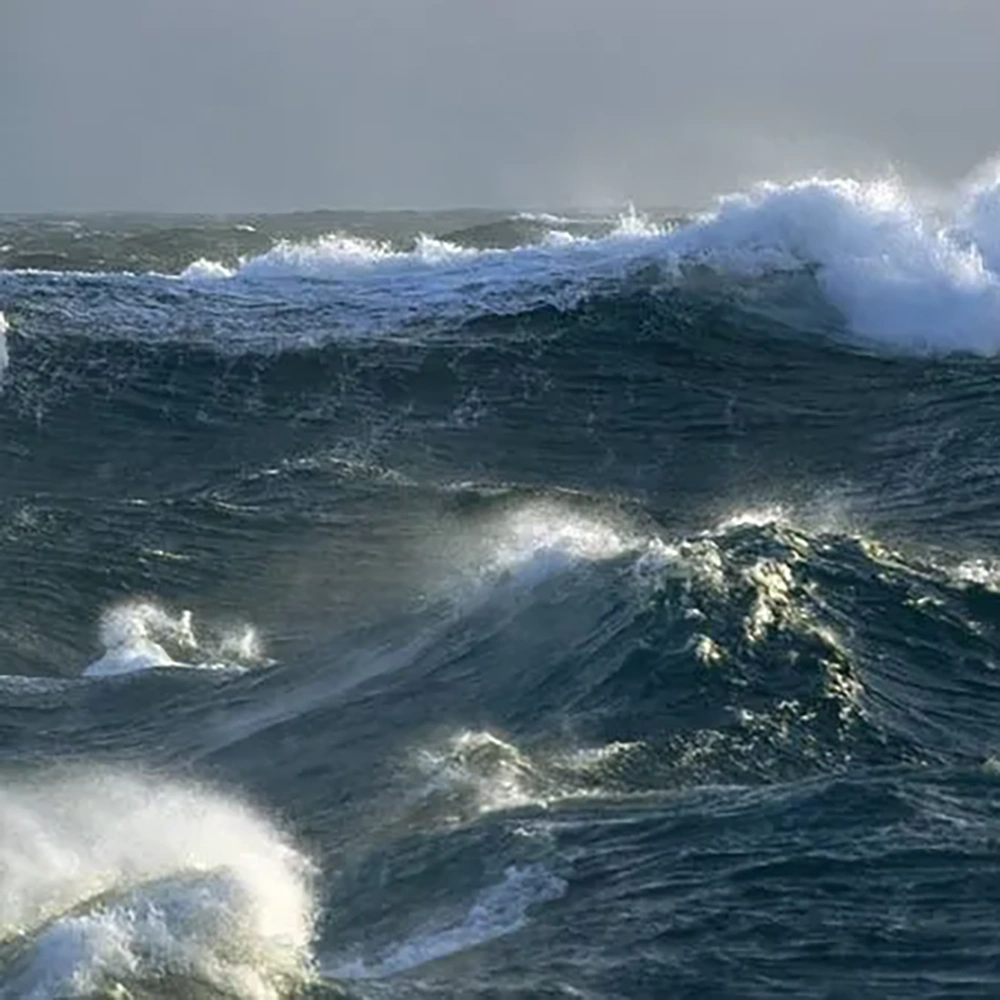
Advanced Coastal Navigation
- Coastal pilotage techniques.
- Tidal calculations and current analysis.
- Night sailing and navigation.
Offshore Passage Making
- Open water navigation and plotting.
- Advanced sail trim techniques for different wind conditions.
- Watchkeeping routines and fatigue management.
- Heavy weather sailing tactics.
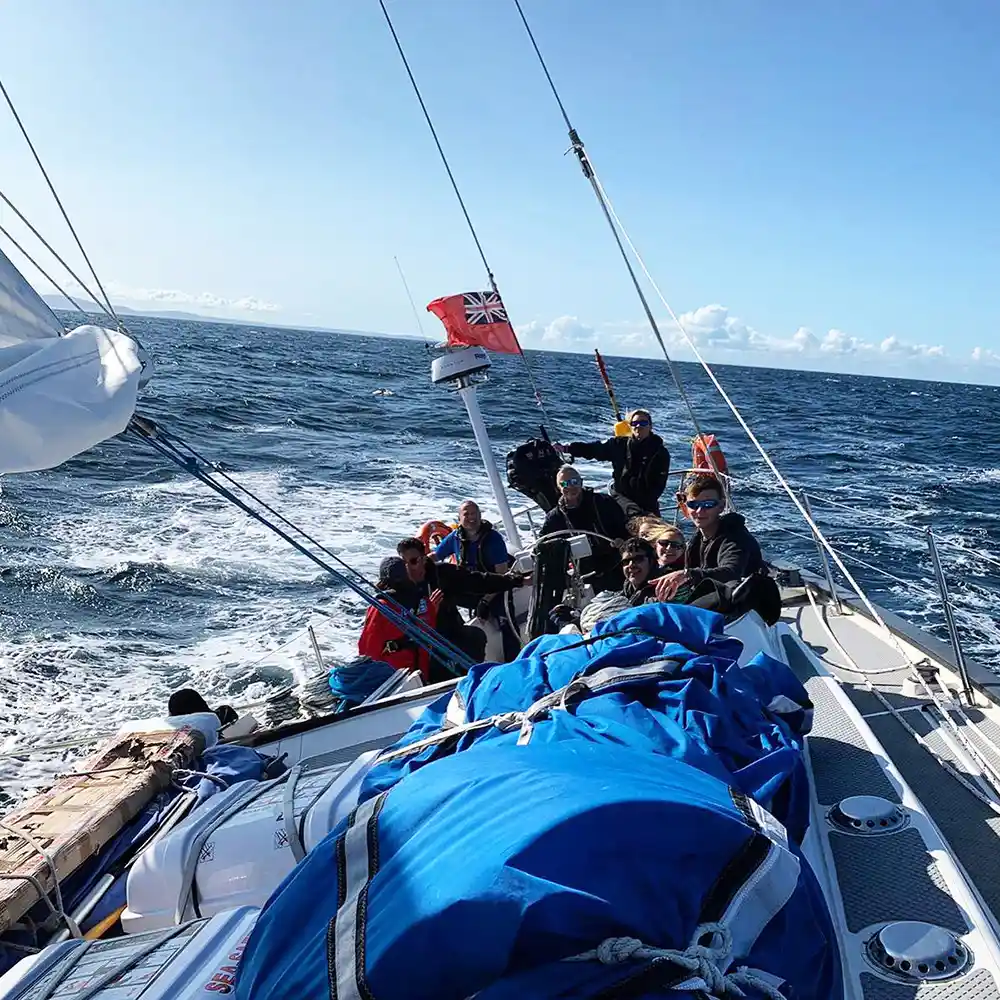
Weather Systems and Meteorology
- Understanding the Beaufort scale and synoptic charts.
- Identifying and handling squalls, fronts, and storms.
- Barometric trends and their implications.
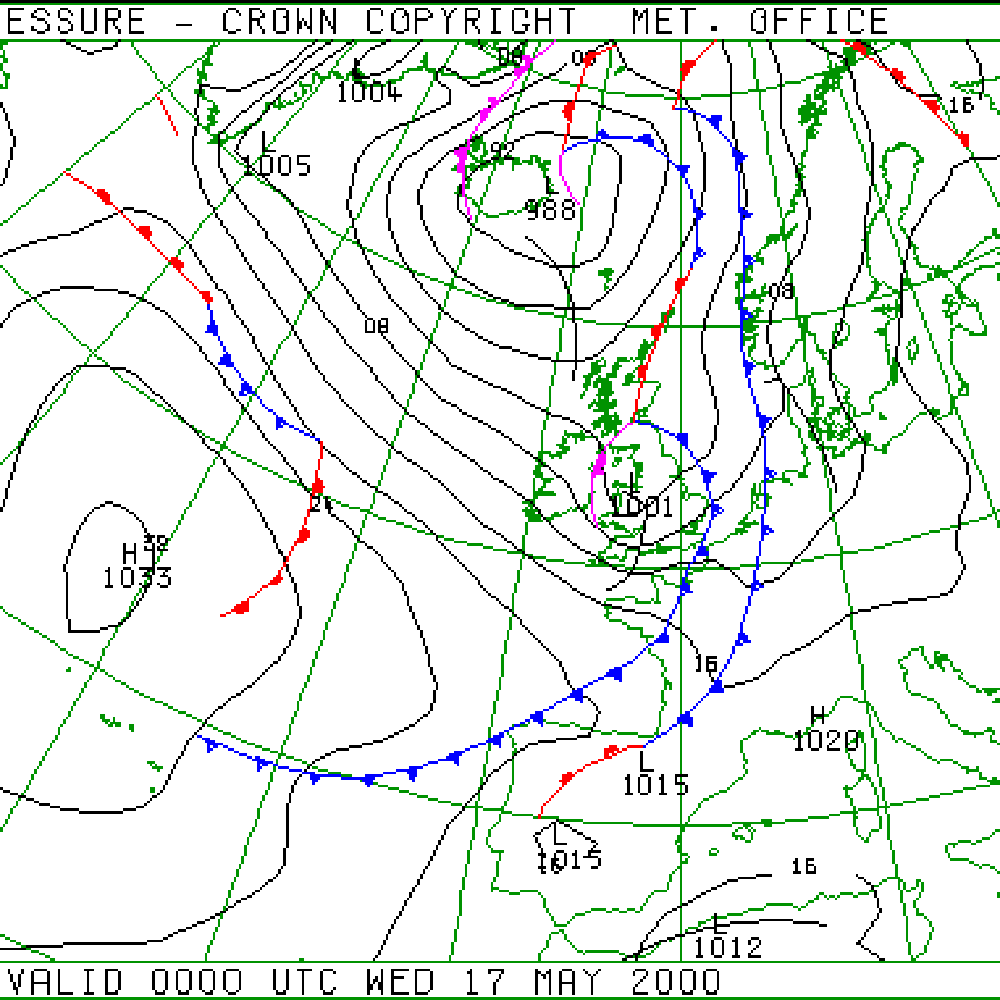
Emergency Scenarios and Drills
- Man overboard recovery under sail and power.
- Firefighting and abandon ship procedures.
- Damage control and water ingress management.
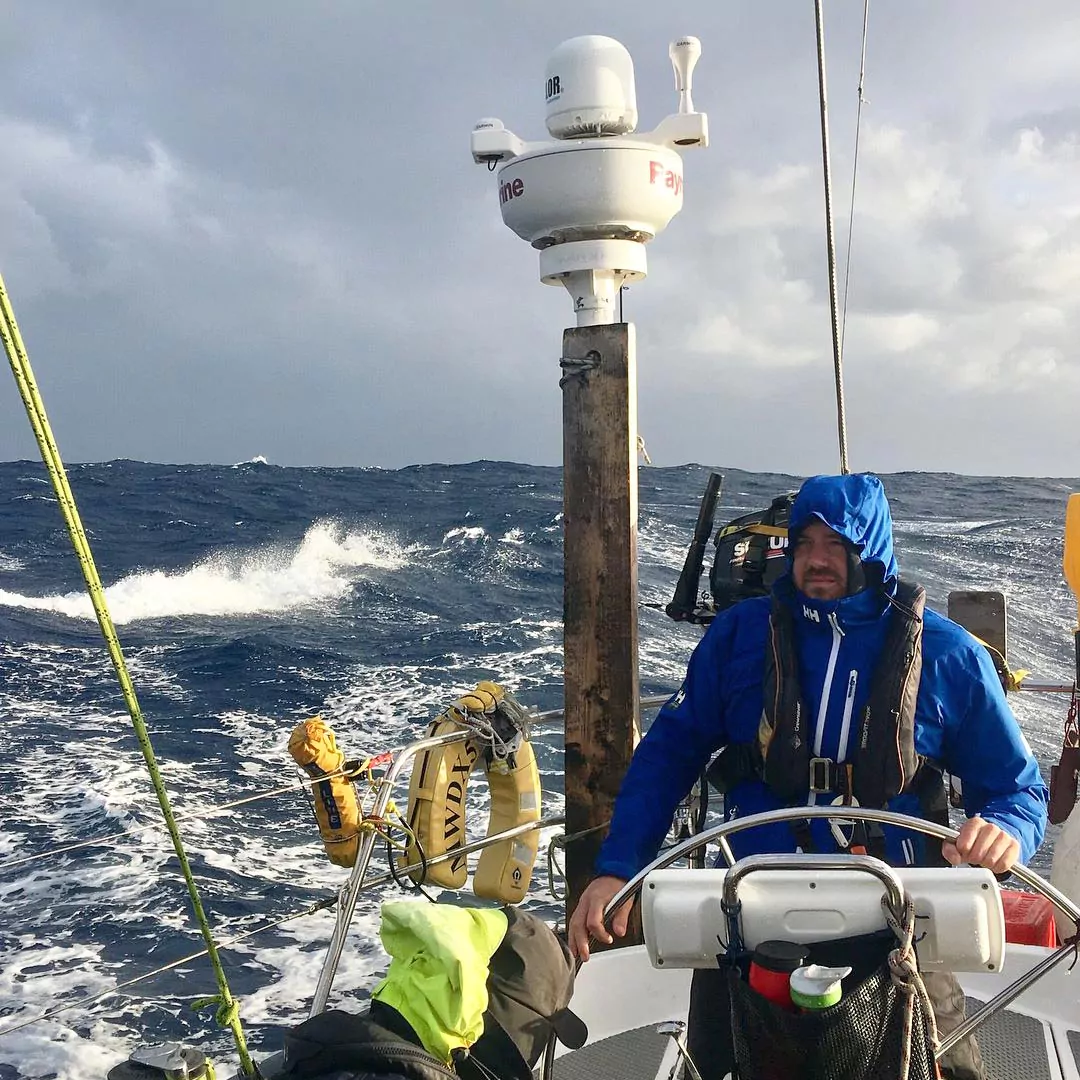
Crew Leadership and Teamwork
- Effective communication and decision-making under stress.
- Conflict resolution and crew welfare.
- Leadership styles and crew motivation.
Note: This course requires high commitment and participation from all crew members. Participants are expected to participate actively in the voyage, including night watches, navigation, and daily chores.
Further considerations
Understanding the Weather: The Bay of Biscay is notorious for its volatile weather patterns. Understanding meteorological conditions is crucial for a safe passage. Sailors should have a firm grasp of reading synoptic charts and interpreting weather forecasts. The area is known for strong winds, mainly the northerly winds and westerly winds that can whip up suddenly. Summer (July to September) offers the calmest conditions, but vigilance is still vital. Utilizing the weather forecast, knowing when you’re most likely to get the best wind direction, and having a flexible itinerary that allows for weather-related delays and using the best weather window are essential.
The continental shelf
The continental shelf in the Bay of Biscay is infamous for causing breaking seas due to its shallow depth, which reduces from 3000 to 200 meters in less than 20 miles. As deep-water waves approach the shallower continental shelf, their velocity decreases while wave height increases, often resulting in steep, breaking waves that can be very dangerous. This is exacerbated by the northerly winds that follow a low, leading to a confused seas state.
Navigation Skills Advanced navigation skills are a prerequisite for crossing the Bay of Biscay. The area’s complex tidal patterns, busy shipping lanes, and many fishing boats demand a high level of competency in chart plotting, GPS navigation, and the use of radar. Night sailing experience is also essential, as the passage will involve overnight sailing. A thorough understanding of the International Regulations for Preventing Collisions at Sea (COLREGs) is necessary to navigate high-traffic areas safely.
Boat Preparation and Equipment A well-prepared boat is your best ally in the unpredictable waters of Biscay. You are heading out into the Atlantic Ocean, so the vessel should be seaworthy, with a solid hull, reliable engine, and efficient bilge pumps. Rigging and sails must be in excellent condition, capable of withstanding strong winds and heavy seas. Essential equipment includes a life raft, EPIRB (Emergency Position-Indicating Radio Beacon), VHF radio, AIS (Automatic Identification System), and a well-stocked first aid kit. Preparing for emergencies with tools and spare parts for basic repairs is also critical.
Crew Readiness The importance of a well-prepared and cohesive crew cannot be overstated. Each crew member should be experienced in sailing in rough conditions and mentally and physically prepared for the trip’s demands. Roles and responsibilities should be clearly defined and understood. Regular drills for man-overboard situations, fire onboard, and abandoning ship are essential for crew readiness.
Provisioning and Comfort While not as immediately critical as safety, the comfort of the crew significantly impacts the voyage’s success. Adequate provisioning, including food, water, and fuel, is essential. Meals that are easy to prepare in rough conditions can boost morale. Attention should also be paid to personal gear, ensuring each crew member has appropriate clothing for warm and cold conditions.
Mental Preparedness: The psychological aspect of crossing the Bay of Biscay is as crucial as the physical preparation. Sailors should be mentally prepared for the potentially rough conditions, and the need for constant vigilance. A positive attitude and the ability to remain calm under pressure are invaluable traits for such a journey.
Respect for the Sea Finally, a deep respect for the sea and its unpredictability should guide every decision when you sail the Bay of Biscay. Overconfidence can be dangerous in such challenging conditions. Sailors should be ready to adjust plans based on weather, crew well-being, and vessel condition.
Conclusion A Biscay crossing is an ambitious undertaking that demands thorough preparation and respect for the sea’s might. With careful planning, skilled navigation, and a well-prepared crew and vessel, sailors can successfully navigate these challenging waters. The journey, while demanding, leaves you with a sense of accomplishment and a deep connection with the vast and unpredictable nature of the ocean.
Ready to join the masterclass? Head to the Dates & Prices tab